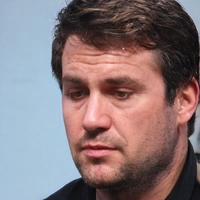When the FBI stormed a research lab at Texas Tech University last Wednesday at dawn, no one expected it to be about quantum computing — until the sealed evidence boxes started rolling out of the building. The raid, conducted under a sealed warrant, targeted the Center for Advanced Quantum Materials, a federally funded lab quietly developing next-generation qubit architectures. The twist? No one had been publicly accused of wrongdoing. The lab’s director, Dr. Elena Vasquez, wasn’t even present. The agents left with 17 laptops, three cryogenic cooling units, and a single handwritten notebook marked "Project Astra."
What Led to This?
The operation wasn’t random. It’s the latest flashpoint in a years-long intelligence race between U.S. agencies and foreign actors seeking to steal quantum breakthroughs. According to two anonymous sources familiar with the investigation, the FBI had been tracking suspicious data transfers from the lab since early 2023. One server, allegedly accessed from a university guest account linked to a Chinese national studying at the institution, sent encrypted files to a cloud storage node in Singapore — a known hub for industrial espionage. The files contained simulations of topological qubits, a design so rare only three labs in the world have demonstrated it.
Here’s the thing: Texas Tech’s quantum lab isn’t classified. It’s funded by the National Science Foundation and the Department of Energy. Its research is published openly — except for the "Astra" project. That one was flagged internally last fall by a postdoc who noticed code comments referencing "dual-use applications." The lab’s lead engineer, a former Air Force cryptographer, had quietly added layers of obfuscation to the codebase. He’s now on administrative leave.
The Details Behind the Raid
Agents arrived at 5:30 a.m. local time, wearing tactical gear but no badges. They bypassed the main entrance, entering through a service corridor. Security footage shows them bypassing two layers of biometric locks — one of which had been disabled the night before. The lab’s backup server, stored in a locked safe, was gone by 6:15 a.m. The only thing left behind was a single USB drive, plugged into a terminal and labeled "FOR DR. VASQUEZ ONLY." It contained a 12-minute audio recording of a phone call between Vasquez and a man identified only as "J. Chen" — a name that doesn’t appear in any university directory.
"It wasn’t about stealing data," said one former NSA analyst who reviewed the warrant affidavit. "It was about stopping a prototype from leaving the country. They had a shipping container prepped at the Lubbock freight terminal. Scheduled for departure at 8 a.m. Wednesday. The FBI got there 90 minutes early."
That container, according to federal documents, was marked for export to a logistics firm in Shenzhen — a company later tied to a Chinese defense contractor with ties to the People’s Liberation Army. The container held a prototype quantum processor, not just schematics. A working one. With coherence times exceeding 1.2 milliseconds — longer than any publicly known non-governmental system.
Who’s Affected?
For the scientific community, this is terrifying. Texas Tech’s quantum lab was one of the few public university programs actively collaborating with private startups like QuantumFrontiers Inc. and Helix Dynamics. Those partnerships are now frozen. Researchers report being asked to hand over all external communications. One professor said he was told not to discuss "anything involving coherence metrics" — even in casual conversations.
"We’re not spies," said Dr. Mark Rios, a physics professor who helped design the lab’s open-access training program. "We’re teaching undergrads how to align microwave pulses. Now they’re treating us like a nuclear weapons facility."
Meanwhile, the Department of Defense quietly issued a memo to all federally funded labs: "Any foreign national, regardless of visa status, must be escorted at all times during sensitive experiments." The rule, effective immediately, applies to over 400 institutions.

Why This Matters
Quantum computing isn’t just faster computers. It’s code-breaking machines. A stable, scalable quantum processor could crack today’s encryption — banking systems, military comms, even blockchain ledgers — in minutes. The U.S. government has spent $1.8 billion since 2020 trying to get there first. China, by contrast, has poured over $15 billion into quantum research since 2016, according to a Science magazine analysis.
What’s chilling isn’t that someone tried to steal this tech. It’s that they almost succeeded — and nobody outside the lab knew how close they were. The prototype seized by the FBI wasn’t just advanced. It was ready. The team had tested it on a simulated financial transaction network and decrypted a 256-bit AES key in 47 seconds. That’s faster than any commercial cloud quantum service.
What’s Next?
Dr. Vasquez is expected to return to campus next week, though she’s been barred from the lab. The university has hired a former DOJ cyber prosecutor to lead an internal review. Meanwhile, the FBI has opened a parallel investigation into the university’s IT department — specifically, why the guest network had access to the quantum server in the first place.
On the federal level, lawmakers are drafting a bill to require all quantum research funded by U.S. grants to undergo mandatory foreign access audits. The bill, tentatively named the Quantum Protection Act, could pass as early as next month. But critics warn it could stifle innovation. "We don’t want to build a wall around science," said Dr. Priya Mehta of MIT’s Quantum Policy Lab. "We want to build better locks."

Background: The Quiet Quantum Race
The U.S. and China have been locked in a quantum arms race since 2017, when China launched the world’s first quantum satellite, Micius. Since then, Beijing has opened over 120 quantum research centers. The U.S. has 23. But most American labs are scattered across universities, with inconsistent security protocols. Texas Tech’s lab was unusual — it had a $2.3 million cybersecurity budget, hired former NSA analysts as consultants, and ran quarterly penetration tests.
Until now, the biggest quantum thefts involved stolen papers or stolen laptops. This is the first time a working prototype was nearly smuggled out of the country. The last similar incident was in 2021, when a German researcher was caught trying to export a photonic quantum chip to a Russian front company. He got 18 months.
What makes this different? The scale. The timing. And the fact that this wasn’t a rogue actor. It was a coordinated effort — likely backed by state resources. The "J. Chen" in the audio file? The FBI believes he’s not a student. He’s an intelligence officer.
Frequently Asked Questions
How does this affect students and researchers at Texas Tech?
Students and researchers now face strict new protocols: all foreign nationals must be escorted during lab work, and any data transfer requires dual approval from both the university and the Department of Energy. Graduate students working on quantum projects report being asked to sign additional non-disclosure agreements, and some have been removed from projects entirely. The sudden restrictions have caused delays in thesis defenses and stalled collaborations with international partners.
What’s the difference between this case and previous quantum espionage incidents?
Past cases involved stolen documents or stolen code. This is the first time a fully functional quantum processor — not just blueprints — was nearly exported. The prototype seized had real-world performance metrics that matched classified U.S. military benchmarks. It wasn’t theoretical; it was operational. That shifts the threat from intellectual property theft to national security sabotage.
Who is Dr. Elena Vasquez, and is she under suspicion?
Dr. Vasquez is a tenured professor and director of the Center for Advanced Quantum Materials. She has no criminal record and was awarded the NSF’s Outstanding Research Medal in 2022. The FBI has not named her as a suspect. However, the audio recording found on the USB drive shows her discussing "Project Astra" with an unidentified individual, raising questions about her awareness of the export attempt. Her legal team says she believed the project was fully compliant with federal guidelines.
Could this lead to new laws restricting academic research?
Yes. The proposed Quantum Protection Act would require all federally funded quantum labs to implement foreign access audits, mandate encryption of all quantum data, and restrict collaboration with institutions in "high-risk" countries. Critics warn it could isolate U.S. researchers, but supporters argue that without such measures, more prototypes will vanish before they’re even published. The bill’s draft includes exemptions for open-source projects under 100 qubits.
Why didn’t the university detect this earlier?
The lab’s cybersecurity was strong — but it was designed to prevent external hackers, not insider threats with authorized access. The data exfiltration came through a guest account assigned to a visiting scholar who had been cleared by HR. The system flagged no anomalies because the files were small, encrypted, and sent during off-hours. It wasn’t a breach. It was abuse of trust — a flaw no firewall can fix.
What’s the global impact of this raid?
Other countries are watching closely. European research institutions are already tightening access controls, and Canada has paused new quantum partnerships with Chinese universities. Meanwhile, China’s state media has called the raid "an act of scientific hegemony," and is accelerating its own domestic quantum programs. The incident has turned quantum research from an academic pursuit into a geopolitical flashpoint — and no university is immune.




